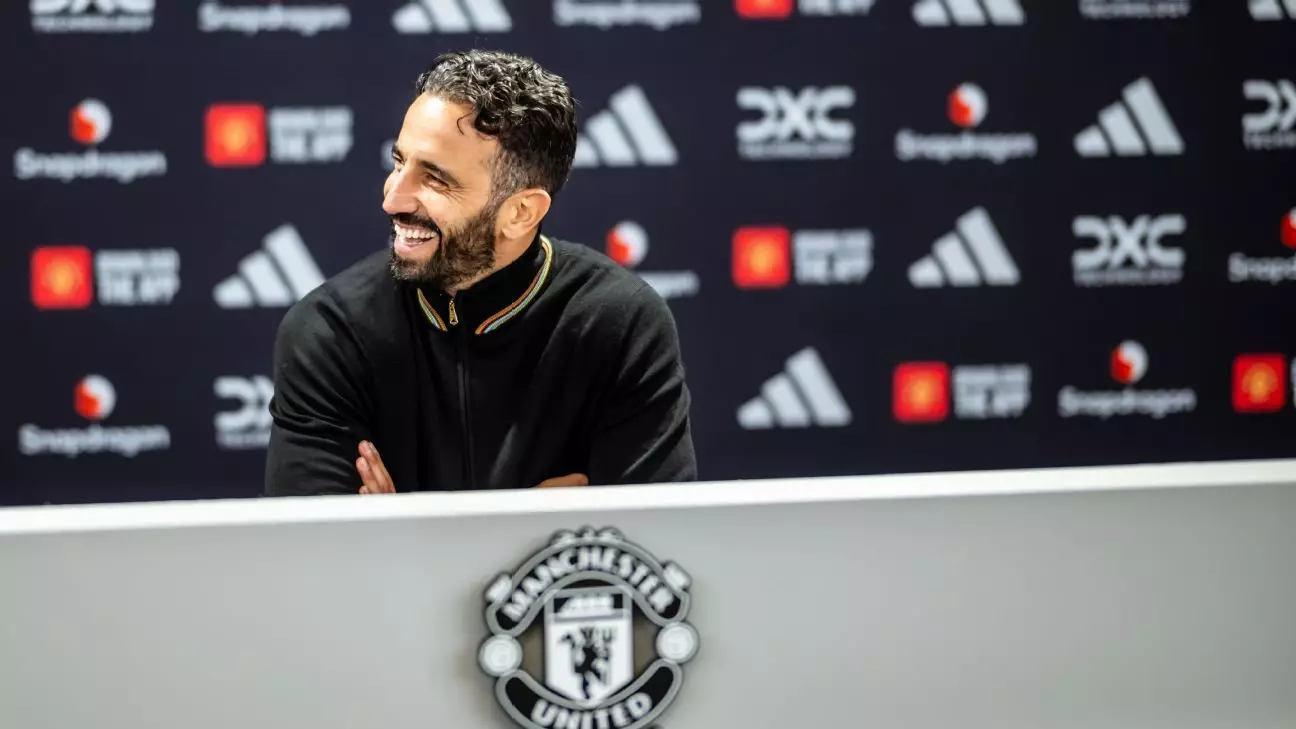In the ever-changing landscape of football, few teams carry the history and expectation of Manchester United. With the appointment of Rúben Amorim as manager, the club hopes to turn a new leaf after a decade of managerial instability and underperformance. Amorim, the sixth manager since the legendary Sir Alex Ferguson stepped down, faces a Herculean task — revitalizing a club that once reigned supreme in English football but has since lost its way.
At just 39 years old, Amorim’s ascent to one of the world’s most prestigious managerial roles is nothing short of remarkable. Despite his relatively young age compared to predecessors like David Moyes and Jose Mourinho, he exudes a renewed optimism that he believes is both necessary and attainable. His proclamation, “I believe I am the right guy at the right moment,” emanates an unmistakable confidence. Such self-belief is crucial in a role that demands not only tactical acumen but also the ability to inspire and unite a diverse group of players facing scrutiny from fans and media alike.
His first press conference showcased his intention to create a connection with both players and the fanbase. Amorim’s acknowledgment of the monumental task ahead — to reclaim the Premier League title — is indicative of an understanding of the club’s demands. He is not merely aiming for improvement; he aspires to greatness, a characteristic that aligns well with Manchester United’s storied past.
Amorim’s management style will inevitably draw comparisons to previous managers, particularly the “Special One,” Mourinho, under whom he interned. While he acknowledges receiving personal support from Mourinho, Amorim is keen to carve out his own identity. By emphasizing that “a lot of things change,” he signals a willingness to adapt and innovate. This divergence from Mourinho’s approach may very well be necessary, as the current era of football demands a more dynamic and evolving tactical framework, particularly with the changing styles of the Premier League.
His preference for a 3-4-3 formation will be an intriguing tactical shift for a team that has been underwhelming for several seasons. This strategy not only reflects a modern approach to attacking football but also suggests a focus on versatility and adaptability. Such formations require players who are not just specialists in one position, but who can interchange between roles, creating fluidity on the pitch.
As Amorim prepares for his first match against Ipswich Town, the realities of managing Manchester United come into sharp focus. Inheriting a team stationed uncomfortably in 13th place in the Premier League table is no small feat. The pressure from fans and the media could amount to a daunting psychological barrier. However, Amorim’s commitment to instilling discipline at both ends of the pitch is refreshing. Recognizing the team’s tendency to lose possession excessively and defending inadequately reveals his understanding of the technical shortcomings that must be addressed immediately.
Moreover, he emphasizes the importance of “the small things” in football, a sentiment often overlooked by many coaches who seek sweeping changes. This focus on minute details is essential; successful teams often thrive on consistency in execution. By prioritizing these specifics, Amorim could set the groundwork for a larger strategy that fosters long-term success.
The Road to Redemption
Ultimately, Amorim’s appointment at Manchester United symbolizes a hopeful new chapter for a club that has struggled to find its identity since Ferguson’s departure. If he can translate his vision into reality, foster player development, and cultivate a winning mentality, he has the potential to revive the glory days of United football. However, success will not come without its own set of challenges, and only time will tell whether Rúben Amorim can indeed lead Manchester United back to the pinnacle of English football. The journey ahead is fraught with difficulties, but in football, as in life, the hope of prosperity often hinges on the boldness of vision and the strength of character behind it.

